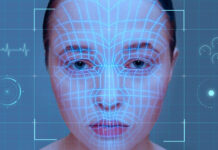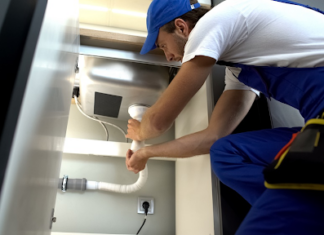Aside from the physical and emotional agony, acne may also damage the self-esteem and well-being of those who suffer from it if left untreated. People with persistent acne are always searching for a solution to their skin issues. It is a million-dollar industry that exists in Australia, just focusing on products for treatments of acne. It is a $345 million industry with as low as nine businesses and 300+ people employed. Research shows that 1 out of every 70 women in Australia are conscious of acne and pimples and prefer treatment. There are several types of acne, and it is important to know them before you go ahead with an acne treatment.
- Blackheads: When open comedones (also known as blackheads) emerge, they appear on the face, neck, chest, and upper back. The pimple’s head is black. Thus they’re known as blackheads. Sebum oxidises on the skin’s surface, resulting in a black mark caused by dirt or an illness. In most cases, blackheads result from blocked pores produced by a buildup of dirt and oil.
- Whiteheads: Blocked follicles that show as white lumps or patches are known as whiteheads.
- Papules: As the name suggests, pimples are red, inflammatory sores that may be unpleasant and painful.
- Pustules: There are many different types of pimples, but bumps are one of the most common. They are usually white or yellow, although they may also be pus-filled. Acne scars may result from popping pimples, even if it’s appealing.
- Nodule: An acne lesion known as a nodule is a nodule that develops under the skin and is hard to touch. Acne lesions that are less than 2 millimetres broad are called blemishes.
- Cysts: Acne lesions that are inflammatory and filled with pus are known as cysts. In most cases, they are quite painful and may need medical attention.
Treating acne is of utmost importance quickly.
Acne scars cannot be erased without cosmetic procedures if therapy is delayed. If you have severe acne, scarring may be avoided if you treat the outbreak location early and thoroughly. Acne scars may be a constant reminder of your fight with the disease, but a professional dermatologist can help you get rid of them as fast as possible.
Faster therapeutic outcomes.
Regardless of the severity of your acne, therapy takes time. If you have a few pimples to deal with, it will take less time and effort to get rid of them than if you have a variety of breakouts, such as blackheads, whiteheads, and deep-seated cysts.
Cut down on scars.
To avoid scarring, treat acne as soon as possible. Scarring is more common in acne that is more severe. If you pick at minor acne, you may end up scaring yourself. In addition to preventing scarring, treating acne at its earliest stages may also prevent people from acquiring a habit of picking at their skin, leading to scarring.
Prevent new spots from forming once acne has healed.
Acne pimples, cysts, and nodules may leave a black area on the skin with medium to dark pigmentation. Post-inflammatory hyperpigmentation is the term given for this by dermatologists (PIH). Acne scars may appear as a red mark on light-skinned people. For months, these patches might remain. Acne scars are seen as worse than acne itself by many people.
Make sure that minor acne doesn’t get out of hand and turn into something more serious.
When a few pimples first appear, it is possible to prevent them from becoming widespread blackheads, whiteheads, and deep, severe acne.
Prevent the need for more potent acne medication.
Acne that is severe needs the use of powerful medications to clean up. A dermatologist must monitor these medications since they have a more comprehensive range of probable side effects. More trips to the doctor’s office will be required.
Acne breakouts may last for years.
People may have acne at any age. Children as young as 7 to 12 years old are being diagnosed with acne by dermatologists. Acne may be prevented by treating it early and keeping it under control. For many people, it means a significant amount of time without acne. Acne may last into one’s 20s for many individuals. Acne may continue to affect individuals into their 30s, 40s, and even into their 50s and 60s.
Don’t get caught up in your feelings.
Acne is more than just a skin condition. Acne might harm one’s mental health, according to research. Acne may hurt one’s self-esteem, according to several. Acne treatment may help ease these symptoms, according to other research. Acne might cause some individuals to isolate themselves from others. Whether or not the acne is severe doesn’t seem to be an issue. It doesn’t matter how bad your acne is; it may negatively impact your self-esteem and relationships.








